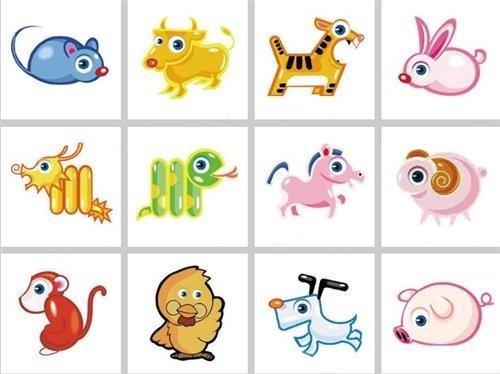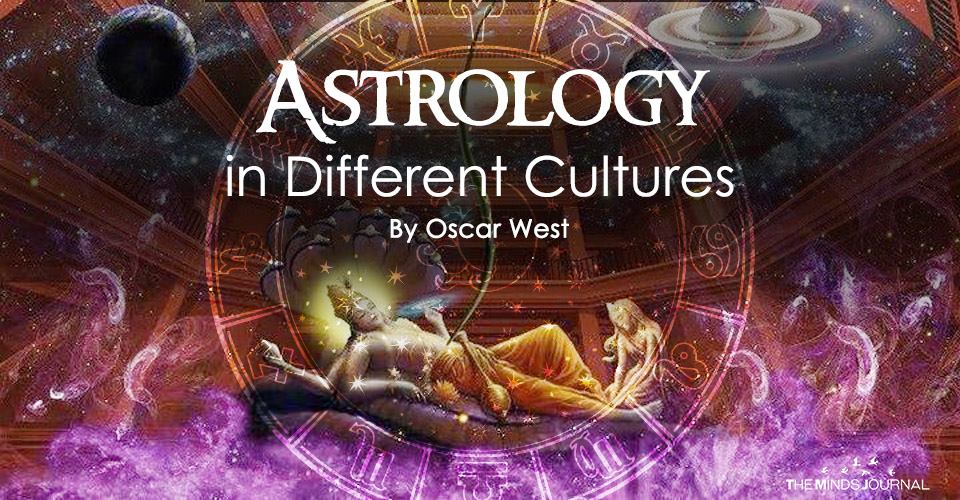Astrology in Different Cultures
When things go wrong in your life, you might reckon that it could be because of the bad choices you make. But when random things happen to you without you lifting any finger, then you think there might be mysterious forces in the universe that conspired to make them happen.
This, perhaps, is the simplest way to describe what astrology refers to. But in reality, astrology is an interestingly complex subject that also influences cultural groups in many different ways.
In this post, we’ll take a look at astrology as practiced in three different cultures around the world.

Western Astrology
For those in Western countries, this is probably the most popular form of astrology, as you can read it in horoscopes published in newspapers and magazine columns. Its focus is on sun signs, which gives it a rather tip-of-the-iceberg nature since it only represents a small fraction of the full astrology chart.
Historically, Western astrology goes as far back as 2300 BC, starting in ancient Mesopotamia and making its way into ancient Greece around 600 BC. However, it was during the period of Hellenistic culture when the study, development, and acceptance of astrology became widespread with the concepts of horoscopes and zodiacs, as we know them today, being introduced at the time.
Core Principles
The central principle of Western astrology is integration within the cosmos. To help you better understand it, you need to be familiar with the other core principles and main terminologies associated with Western astrology.
- The individual, Earth, and its environment represent a single organism with parts that are correlated with each other.
- When an individual and the Earth undergo cycles of change, you can expect that the same cycles of change are observed in the heavens as well. This is the idea that the maxim “as above so below” expresses.
- The sun, moon, and planets journey across the sky through a band of constellations called the zodiac.
- The zodiac has 12 signs representing the same number of constellations through which the sun passes for the whole duration of the year. Each of these 12 signs corresponds to a basic personality type based on what elements (fire, earth, air, and water) and modes (cardinal, fixed, and mutable) comprise them.
The 12 Signs of the Zodiac

Looking at the chart below, you will see that the 12 signs of the zodiac are further divided into a corresponding house, with Aries in the first house, and ruling planets to determine its energy.

In a nutshell, Western astrology can help you identify a sign by understanding the house, planet, god, element, mode, and polarity associated with it. Thus, you would come across personality tests that are based on astrological symbols and the meanings they represent.
Read The most beautiful part of astrology – I love the most
Chinese Astrology
We all know China as the birthplace of some of the most popular schools of thought such as Confucianism and Taoism, but did you know that astrology is also one of its major contributions to mankind?
Chinese astrology is based on and tied to astronomy—the study of the positions, motions, and properties of objects in the universe, which flourished during the Han Dynasty.
Aside from being closely related to Chinese philosophy, Chinese astrology also takes a lot of elements such as traditional Chinese astronomy and calendars which are concepts not found in Western astrology—making it a very comprehensive form of astrology.
Core Principles
- The theory of the harmony between heaven, earth, and water is the guiding principle behind Chinese astrology. It is also based on the principles of yin and yang, the complementary forces in nature, and other concepts not found in Western astrology such as the lunisolar calendar.
- Chinese astrology takes into account the position of the major planets, sun, moon, and comets at the time one is born, as well as the zodiac sign to determine that person’s destiny. Modern-day Chinese astrology also believes in computing a person’s fate based on birthday, birth season, and birth hours.
- The Chinese lunar (also called lunisolar) calendar is a major component of Chinese astrology. The start of each lunar year depends on the cycles of the moon’s phases, which is in contrast to the solar calendar being used in the West whose annual cycles are based only directly upon the solar year.
- The Chinese zodiac follows a 12-year lunar cycle, with the year in which you were born determines your sign.
- Each sign is represented by one of 12 animals, which is believed to be chosen by Buddha to honor them for visiting him just before he died. Each sign is also assigned a set of attributes based on the nature of their animal counterpart.
Each of the 12 animals in the Chinese zodiac appears in the Chinese calendar in a cycle of 12 years following this order: Rat, Ox, Tiger, Rabbit, Dragon, Snake, Horse, Goat, Monkey, Rooster, Dog, and Pig.

Thanks to the influence of Chinese astrology, the calendar was invented to help people organize their life and establish laws that are in harmony with the world.
The Chinese zodiac is also significant since the signs have helped the Chinese mark or date years according to the 12-cycle period being followed in the Chinese calendar.
Vedic Astrology
Do you believe in the saying “What goes around comes around?” Such is the essence of karma or the belief that whatever you do, whether good or bad, comes back to you.
The subject of karma also implies that what you do is based on your motive or intention, with corresponding repercussions or outcomes, of course.
Whether or not you believe in karma, it’s one of the elements that heavily influence Indian or Vedic astrology, which is a popular concept in the modern age.
Vedic astrology is an astrological system that was developed in India 4000 to 6000 years ago and follows the principles and practice of the Hindu religion. Also known as Jyotisa, which translates to “light,” Vedic astrology focuses on astral patterns of light and how those patterns influence the destiny or Dharma of humans.
Like Western astrology, Vedic astrology uses the 12 signs of the zodiac, although the two differ in the way their calendars relate to the signs.
Core Principles
Vedic culture views nature with three primary attributes and humans with four legitimate motivations.
- Attribute 1: Rajas – pertains to passion and activity
- Attribute 2: Tamas – pertains to darkness and chaos
- Attribute 3: Sattva – pertains to harmony and goodness
- Motivation 1: Dharma – the performance of meaningful work
- Motivation 2: Artha – the acquisition of wealth and material security
- Motivation 3: Kama – the desire for emotional and sensual enjoyment
- Motivation 4: Moksha – spiritual liberation and enlightenment
The Indian philosophy asserts that the three attributes in nature exist in everyone and everything, but in different proportions and contexts.Human beings and living things are said to be the sum of all these three qualities.
There’s a hierarchy of life goals in Vedic science such that the first three motivations can never supersede the fourth one, meaning a life with no spiritual liberation is considered to be insignificant no matter how successful, wealthy, or happy you are.An honorable life in Vedic astrological tradition is one that’s based on the doctrine of karma.
The 12 Signs of the Zodiac Based on Their Attributes and Motivations

While other forms of astrology are often dismissed as pseudoscience, Vedic astrology is hailed to maintain a “scientific” prevalence in modern India.
Many Indians take astrological advice at face value. In fact, some Indian universities offer advanced degrees in astrology.
Although the credibility of astrology, in general, is still up for debate, there’s no doubt that astrology holds an important place in certain cultures all over the world. Learning about the relevance of astrology to different cultures allows us to keep an open mind and gain a better understanding of our interconnectedness with the universe – and with one another.
Post by Astrology.com.au










Leave a Reply